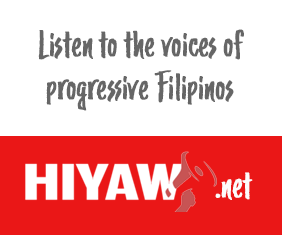By Consumers’ Action for Empowerment
“Transnational corporations (TNCs) are responsible for making us a country of expensive medicines. In fact, given the high poverty incidence, the Philippines rank among the top countries in Asia where medicines are most expensive. The country having no own drug industry, TNCs control the entire essential drug production chain from manufacturing, distribution and retail. Hence, they dictate the high prices of medicines.”
This is the analysis of Consumers’ Action for Empowerment (CAE) on this month’s commemoration of the sixth year implementation of the Universally Accessible Cheaper and Quality Medicines Act of 2008 or RA 9502.
Given the monopoly control, the Cheaper Medicines Law cannot make any significant change in reversing the inaccessibility of essential medicines for the people,” Julie Caguiat, M.D., convener of CAE said.
Caguiat cited (Nifedipine) Adalat Retard (20 mg) manufactured by Bayer pegged at P43.45 per tablet in most drugstores in the Philippines based on 2010 prices while “the same brand and preparation can be bought in India at P1.44 per tablet.” The same is true with (Mefenamic Acid) Ponstan (500 mg) manufactured by Pfizer which is bought in the country for P25.77. The same drug can be bought in India at P2.96.
Why are the same brands of medicines cheaper in India? It is because, unlike our government which succumbs to the dictates of these TNCs, India imposed strict regulations, decisively curbing the control of TNCs in its drug industry,” explained Caguiat.
Caguiat furthers that the poor bear the burden of expensive medicines. A 2012 research done by Ibon Foundation reports that the average family spent P7,018 for health whereas the government allotted a measly P912.50 per person that year; the bottom half of the households spend an average of 49% of their total health expenses for medicines; there is no capitation for primary care and 80% of pharmacy sales are on outpatient.
“The government cannot argue anymore that there is no sufficient fund for health or medicines for that matter. The Aquino government reeks of systemic corruption,” Caguiat argued.
“We call on the government to undertake immediate measures to make essential medicines accessible to the people: remove the monopoly control of TNCs in medicine prices; remove 12% of VAT in essential medicines; ensure free essential medicines in public hospitals; abolish the Disbursement Acceleration Program (DAP) and allocate bigger budget for health including providing for free essential medicines for the poor,” Caguiat ended.
The group will march from the University of Sto. Tomas in España, Manila to Mendiola, Manila at 9:00 in the morning tomorrow, June 27, to underscore their calls.
The CONSUMERS’ ACTION FOR EMPOWERMENT is a loose coalition of organizations, institutions, and individuals from the basic sectors of the society as well as professional and religious organizations that promote consumers’ right to accessible, safe and affordable essential medicines and asserts government’s role in ensuring this right.
Reference:
Julie Caguiat, M.D.
0927-9259413 / (02) 929-8109
Convener, Consumers’ Action for Empowerment
Consumers’ Action for Empowerment
8 Mines Street, Barangay Vasra
Quezon City, Philippines
(+632) 929-8109
http://consumersactionforempowerment.blogspot.com/



